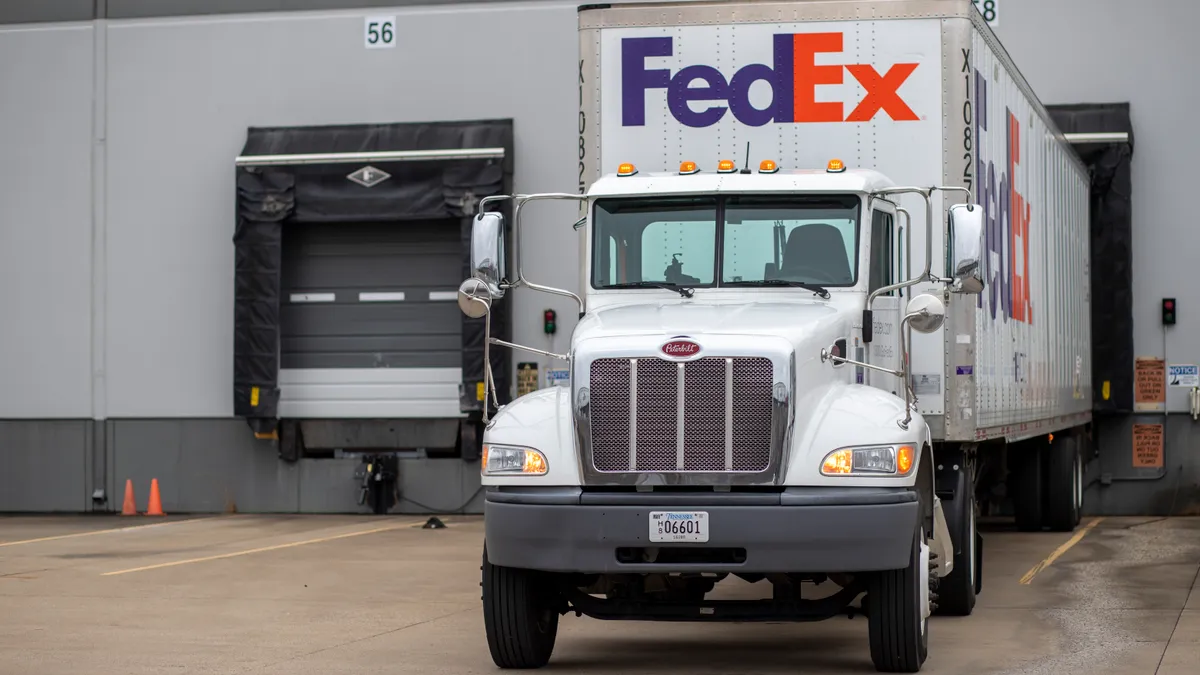Dive Brief:
- Three in five organizations experienced wage inflation in Q2, nearly double the amount during the Q1, a Gartner global survey of 111 CFOs across industries found.
- Due to continued input price inflation increases, ranging from salaries and wages to expensive commodities and freight shipping, nearly three in four (74%) of CFO respondents cited the risk of lower profitability as their top concern. The survey was conducted in July.
- "Most CFOs today have not experienced this level of sustained and broad-based input price inflation," said Randeep Rathindran, vice president of research in the Gartner Finance practice. "The risks are doing too little and taking a hit to profitability, or if inflation turns out to be transitory, overcorrecting by excessively raising prices or wages."
Dive Insight:
When the pandemic struck, companies conserved cash but did not adequately plan for a jump in demand, said Rathindran.
"When the production of $50,000 cars are held up by production of a 50-cent chip, that's the idea of just-in-time manufacturing being carried too far and making inflation worse," he added.
The semiconductor shortage has affected Class 8 production, as well. Paccar said its Q3 truck deliveries are down by 7,000 because of the chip shortage, and it expects the shortage to affect production into Q4.
During the worst of the pandemic, most companies took cost-cutting measures, and, once the fog lifted, focused squarely on returning to pre-pandemic levels of growth. Now, Rathindran said, inflation is moving the focus back to costs.
"Usually this happens in waves," he said. "You worry about costs during a slowdown, and you let your foot off the gas when growth picks up. But now, CFOs are in a position of having to do both."
The main types of input price inflation CFOs said their organizations are grappling with are wages, raw materials and commodities, freight costs and salaries. While the trucking industry may be benefiting from high freight demand, trucking officials have reported significant costs associated with labor constraints.
"At this point, there is [no] let up on challenges for recruiting and hiring and retaining drivers. There is no let up on the cost to outsource capacity, our need to secure capacity in order to dray loads out of the terminal. So, all of those cost challenges are real," J.B. Hunt Executive Vice President of Intermodal Darren Field said on the company's latest earnings call.
Higher costs have created some of their current headaches, as most CFOs are now concerned by the prospect of lower profitability stemming from margin pressures.
Based on results from the survey, Gartner recommended CFOs focus their efforts in three areas as they face margin pressures:
Making more principled price-setting decisions
It would be bad practice to reflexively pass costs onto customers without first assessing whether input price inflation is transitory, Gartner said, and whether their competitors are raising prices.
CFOs must understand their customers' price sensitivity and profitability to avoid further eroding margin profitability.
"Many companies can't offset higher input costs through cost savings, because they're already running so lean after pandemic-induced cost cuts," Rathindran said. "But this can cut both ways. On one hand, people have saved a lot during the pandemic, so companies can raise prices. But on the other hand, depending on the industry, price-sensitive people could write you off as a luxury product."
Rethink recruitment and retention
Companies can reduce the impact of salary inflation for their most vital talent by tapping the "total skills market" and looking beyond traditional talent pools, Gartner said. CFOs specifically may consider reassessing salaries for remote and hybrid workers who choose to relocate to less expensive areas.
Because the respondents' two biggest sources of inflation were wage and salary, it's incumbent upon CFOs to ensure personnel costs aren't completely out of line, Rathindran said.
Improve insight into supply chain dynamics
When supply chain issues arise, the most progressive CFOs don't just diversify their partners or study the data to try identifying and alleviating bottlenecks. Often, forming strategic partnerships and making capital investments in suppliers can significantly decrease longer-term margin pressures, Gartner found.
S.L. Fuller contributed to this report.














